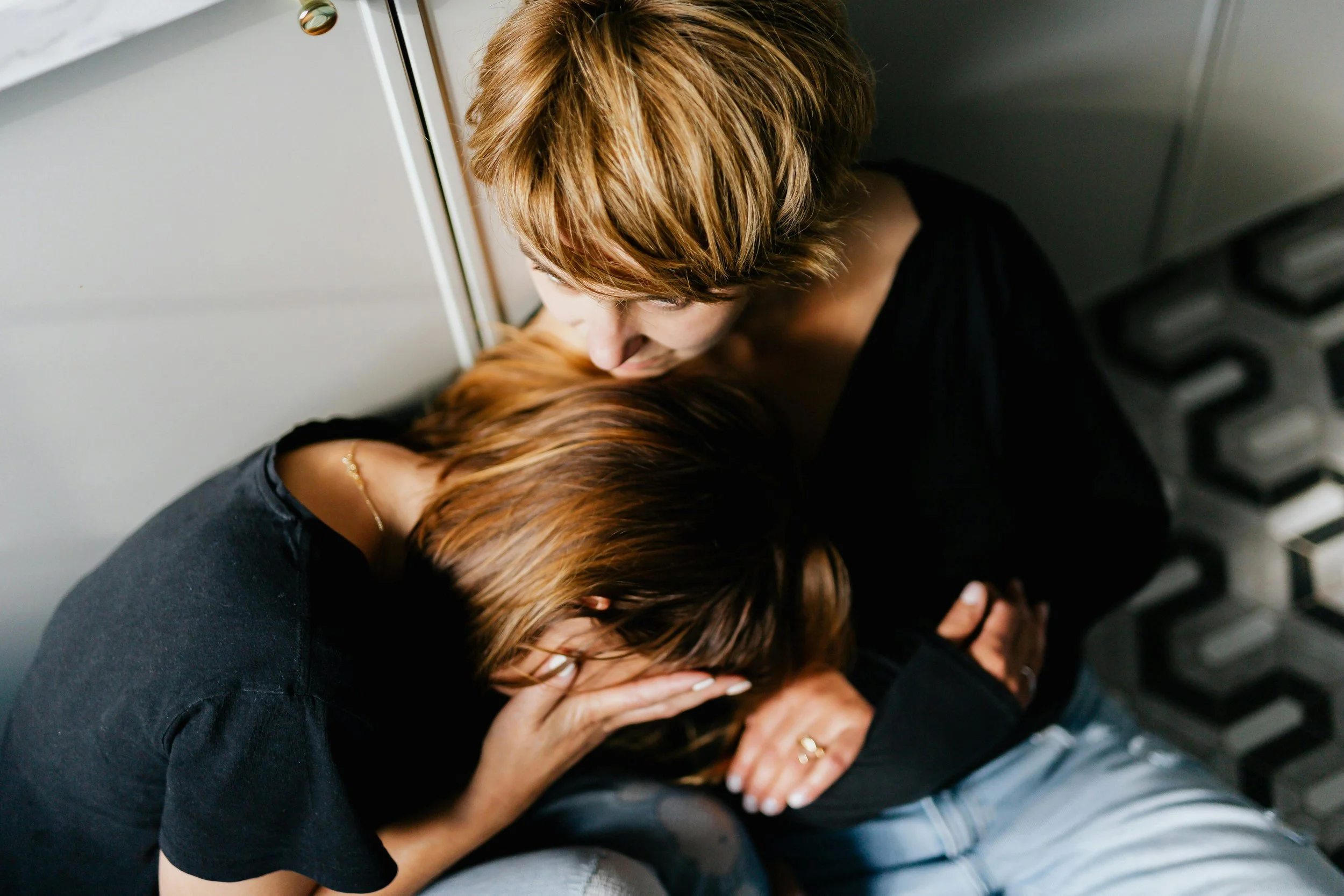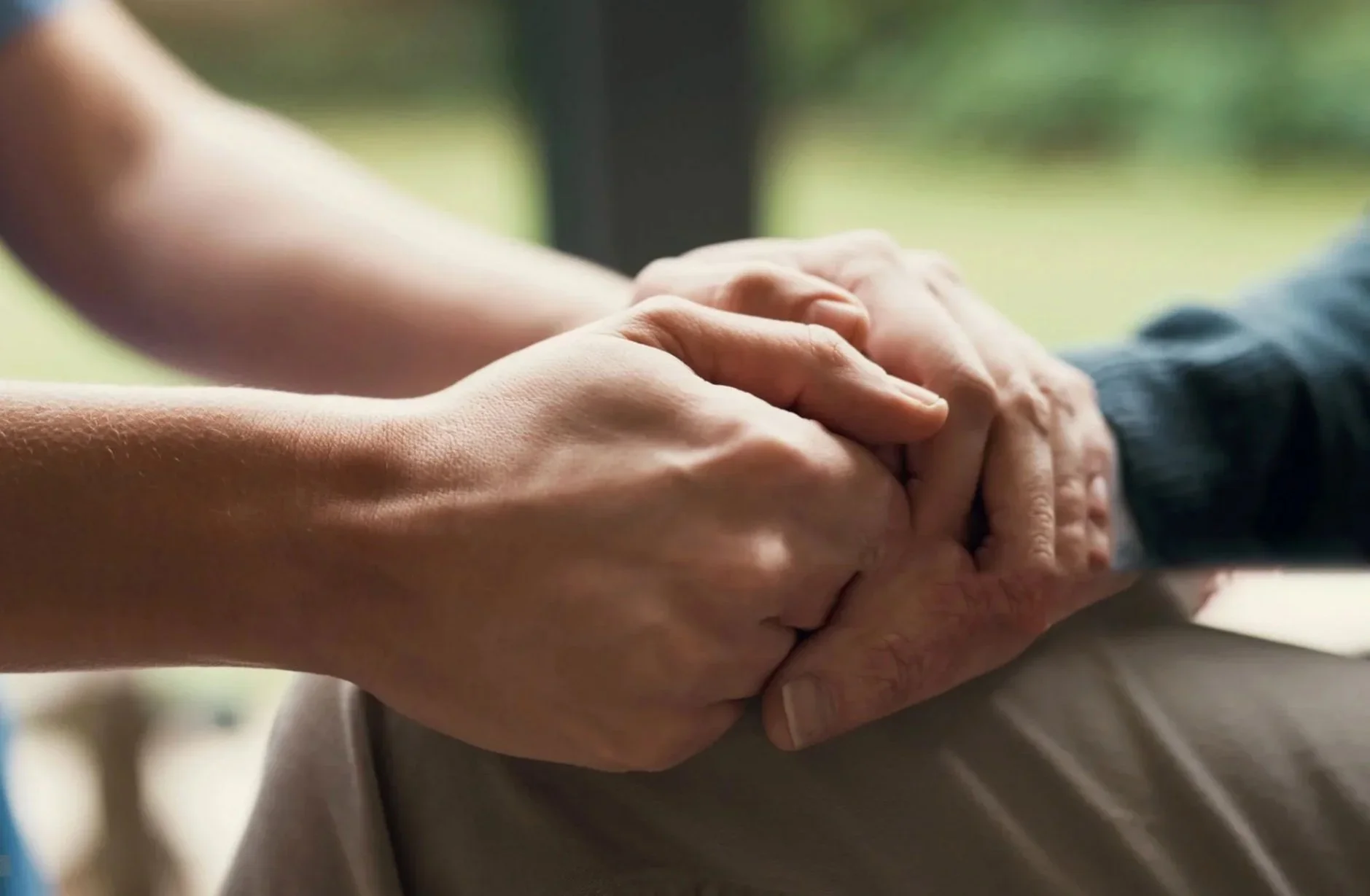
Help at the Time of Death - Bereavement Support
We are so very sorry you need to visit this page. Please know you are not alone. We hope the following articles will help you as you try to navigate what has happened.
Please also visit our bereavement services page to find the range of bereavement support services available to you and further bereavement resources. If you would like to talk to someone, our online counsellor chat service is available weekdays 9am-9pm or see our bereavement helplines.
Practical Help
Struggling with the loss of loved one and need to find family members? When a relative dies, it can uncover the need to find lost or unknown family members - whether for legal, financial, or personal reasons. We explain how.
You might have to deal with the Will, money and property of the person who's died if you're a close friend or relative, or the executor of the Will. If you are anticipating your death you may be considering writing a will. We’ll talk about both aspects of Wills.
What to do when someone dies abroad: there are a whole set of considerations to take into account. However, there are people to help you and you should seek their advice if you find yourself in this situation.
Need to know what to do when someone dies regarding registering the death? The death certificate is the official record that their life has ended and is the formal government record of that fact. We’ll explain how to proceed.
Wondering what to do when someone dies and has their identity stolen? This advice might help you to prevent it.
This article outlines what to do when someone dies and you need to deal with their belongings, it also covers what the legal rules may be.
Do you need to know what to do when someone dies? There’s a lot of Government advice to help and support you during this difficult time. This article explains more.
This is our guide to cancelling mail. Receiving post for the person who has died can be very difficult. Depending on the type of mail, there are a variety of practical measures you can take to deal with the problem.
Do you need to cancel official documents? We’ll tell you what to do when someone dies. Using the Government's ‘Tell Us Once’ service will ensure all government departments are informed. This includes passports, driving licenses, pensions, benefits, national insurance, tax and blue badges.
If you have been affected by bereavement there may be Government benefits you are now eligible for, especially if you are a partner or child of the deceased. Depending on which of your loved ones has died your tax allowances, National Insurance and benefits may change.
Funeral Planning
Understand how The National Society of Allied and Independent Funeral Directors (known as SAIF) can help.
A useful film and book to help any young person understand funerals (burial and cremation) and decide whether to attend and what role they can play in saying goodbye to a loved one.
If you have been bereaved and you can’t attend a funeral or have chosen not to do so you may want to hold your own memorial service for the person you have lost.
Our guide on how to plan a funeral. A funeral is an opportunity to create a special tribute to your loved one and whilst painful, can also be memorable and a positive experience.
If you are attending the funeral of someone of a different faith you can get advice here on, for example, what to expect, how to pay your respects, how to send condolences and what to wear to the funeral.
Understanding and Supporting Bereavement
When a tragedy strikes a community, the emotional impact is far-reaching and causes traumatic grief. Find our practical tips for how communities can come together in the face of shared sorrow.
This video explains the dying process very gently so that we understand it better and can have conversations with friends and family about it.
Are you puzzled by the physical effects of grief? Sabine explains the hidden causes of common grief symptoms.
We provide some information here about what bereavement counselling is, what to expect and how to find a good counsellor that suits your needs. The information is helpfully provided by the Association of Christian Counsellors.
A recipe for how to bake a Rosemary for Remembrance Cake from Nigella Lawson’s book Feast. It’s perfect to bake for yourself or someone else who is in mourning.
In traumatic grief and bereavement, children and young people experience very strong emotions because of the meaning they make of the death.
Every death brings its own trauma to survivors. However, when someone is suddenly killed in an accident or murdered, the stress levels rise considerably for those left behind and this can cause what is known as complicated grief.
Trauma refers to the way that some distressing events are so extreme or shocking that they overwhelm a person’s ability to cope, resulting in lasting negative impact. This article contains information to help you understand and respond to people with traumatic grief.
This article explores effective bereavement support, how we can learn to offer it, and what it looks like.
Different Circumstances
For a lot of people Valentine’s Day is a time to celebrate love, romance and togetherness. But if you’ve lost a partner, the day can bring a renewed sense of grief and loneliness. This article explores coping with grief on Valentine’s Day.
New Year can intensify grief, marking time moving on without a loved one. Acknowledging feelings, avoiding pressure and seeking support may help.
Christmas is a difficult time for those grieving. This is the season of traditions and family gatherings and a by-product is that it highlights the ‘missing-person-shaped’ hole in our lives.
This season of remembrance, we honour those who gave their lives and the families who live with their loss - sharing reflections from bereaved mother Naomi Whittaker-Smith and Padre Mark Perry.
Losing a baby is one of the most devastating experiences a person can go through. This article covers how to understand the impact of baby loss and how to help those who have gone through it.
Switchboard explores the unique challenges LGBTQ+ people may face in bereavement, including disenfranchised grief, family estrangement and exclusion from mourning rituals.
Has your father died? The loss of a father, whether recent or long ago, can make Father’s Day especially painful. We offer some thoughts for how you might take care of yourself around Father’s Day.
Easter, like Christmas, is one of those times of year that can hit especially hard when you’re grieving. There’s the build-up, the family traditions, the messages of hope and renewal…and yet, for many of us (especially widows), it just highlights what’s missing.
Like with many other days in the calendar, Mother’s Day can be very hard when we are grieving and an occasion which can trigger pain even many years after a death. Here are some things to consider for coping when a parent died.
Although losing a loved one is perhaps more common in later life, this doesn’t make it any easier to deal with. If someone you know has been bereaved, there are some simple things you can do to provide bereavement support.
Grieving the death of a child, of any age, brings heartbreak and devastation. This article was written by Jane Harris and Jimmy Edmonds who set up the Good Grief Project following the death of their son, Josh.
This briefing is produced by Brake, the road safety charity. It aims to raise awareness of how people with learning disabilities experience grief, and provides advice on how to offer them bereavement support.
There is not a great deal of research on how autistic people deal with bereavement. However there is useful advice available that can help us support anyone with autism, whatever their age.
Self Care
Experiencing Grief? Movement can ease emotional pain, reduce stress, restore routine and foster connection, offering comfort and healing for those navigating bereavement.
This article explores the physical manifestation of grief. Grief not only impacts our emotions but also brings significant changes to the brain, affecting memory, stress levels, and overall well-being.
In this article we acknowledge the value of pets in supporting grief and the pain we can also experience when they die.
After the funeral, everyone else's lives seem to go back to normal, and you may be left wondering how you're going to cope. Read on for advice on taking care of yourself, crucial for your future wellbeing and that of others, when you’re still mourning.
When you lose someone, the grief will never go away completely — so you may want to know how to cope with grief. Some people find that gardening as they grieve, known as grief gardening, can gently relieve some of the emotional and physical symptoms after the loss of a loved one.
AtaLoss Subject Matter Expert, Sabine Horner is a nutritionist. Here she writes about how deep breathing can help us deal with the storms of emotion when we're bereaved.
One of the most common physical effects of grief is reduced appetite and a lack of interest in drinking enough fluids. Meanwhile we can often cry a lot which depletes our hydration levels further. Sabine explains why keeping hydrated in grief is important and how that can be achieved.
Sabine Horner explains why eating can become a major issue after losing a loved one and experiencing grief. In the early days, for biological reasons most people who are grieving simply do not feel hungry.
Lost your appetite? Of the many physical signs of grief, a decreased appetite and other food related issues are perhaps the most common. Learn what you can do about it.
When we are struggling with grief one often-overlooked factor in managing the symptoms we experience, is ensuring we are getting enough magnesium. Magnesium is an essential mineral that plays a pivotal role in over 300 biological processes within the human body.


















































